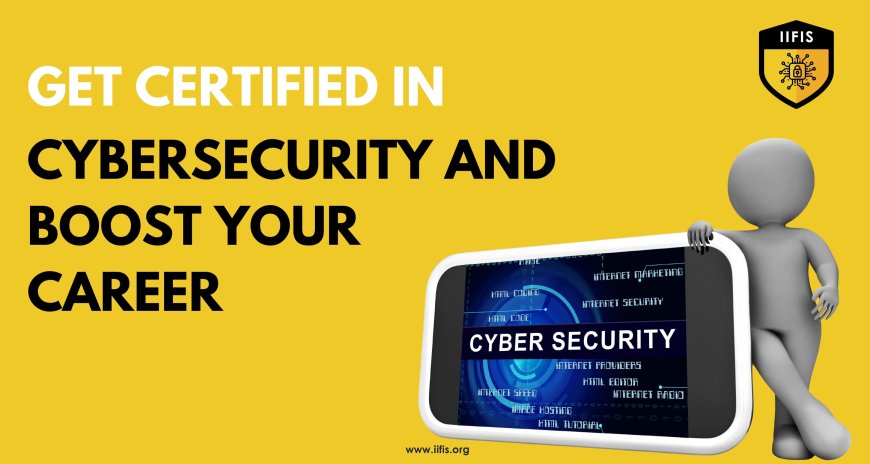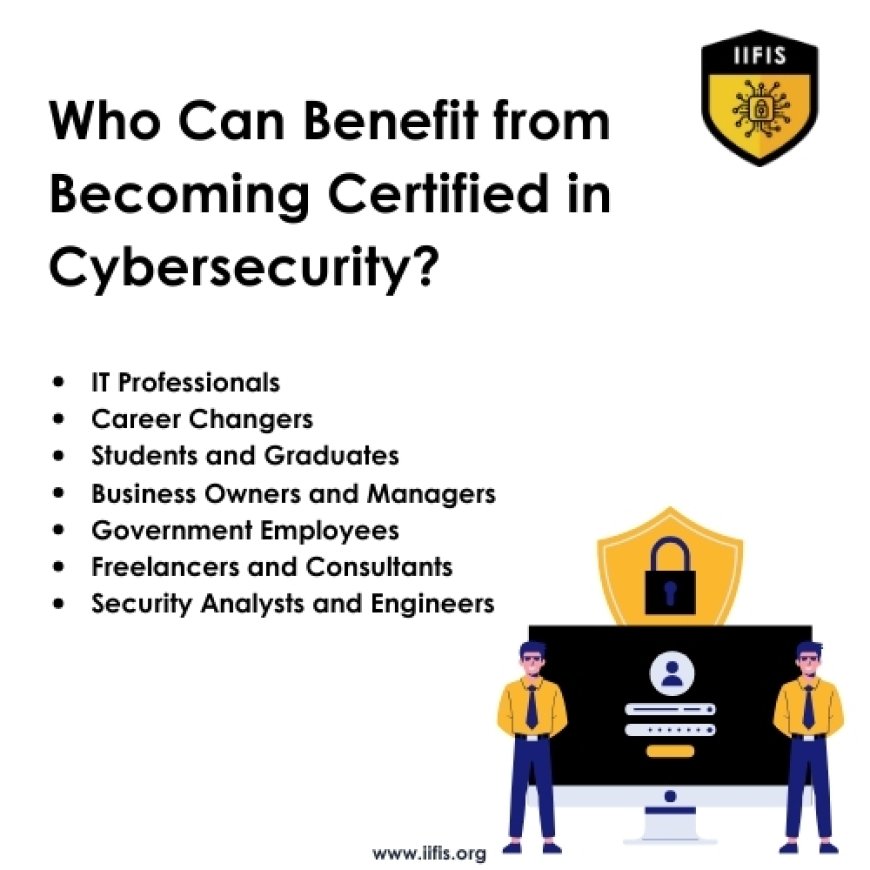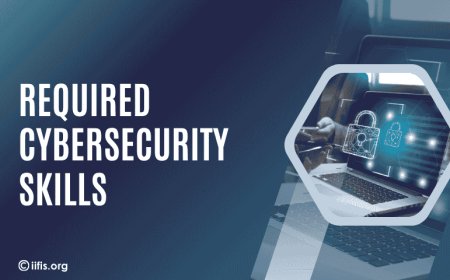Get Certified in Cybersecurity and Boost Your Career
Get your "Certified in Cybersecurity" credential and boost your career. Learn to detect threats, manage risks, and defend against cyber attacks. Stand out in the cybersecurity field.

Keeping digital information safe is important. Cybersecurity is all about protecting computers, networks, and data from bad guys who try to steal or damage them. Getting certified in cybersecurity is a great way to show that you know how to do this job well. Plus, it can help you find better jobs and earn more money. There are different types of security training you can get certified in. Some focus on keeping information safe, others on securing networks, and some on making sure apps are safe to use. These certifications teach you how to find and stop cyber threats before they cause any harm.
Companies like to hire people who are Certified in Cybersecurity because it means they can trust them to keep their information safe. Whether you're already working in cybersecurity and want to move up, or you're just starting, getting certified can make a big difference in your career. Talk more about why getting Certified in Cybersecurity is so important and look at the different types of certifications you can get. Keep reading to find out how getting certified can help you take your career to the next level.
The Growing Importance of Being Certified in Cybersecurity for Advancing Your Career
Cybersecurity is all about making sure that information stored on computers and the internet is protected from being stolen or messed with. To be good at cybersecurity, you need to know a lot of stuff. You need to understand the basics, like how computers work and what kinds of tricks hackers might try. But you also need to know more advanced things, like how to test a system to see if it's easy for hackers to break into.
One way to show that you know your stuff in cybersecurity is by getting certified. Being certified means that you've passed a test showing that you have the skills and knowledge to do the job well. There are different kinds of certifications for different levels of expertise, like Information Security Foundation, Information Security Professional, Certified Penetration Tester, Cyber Security Associate, and Certified Cyber Security Manager. Having these certifications can help you get a better job in cybersecurity and even earn more money. Employers like to hire people who are certified because it shows that they know what they're doing. So, if you're thinking about a career in cybersecurity, getting certified is a smart move. It'll help you stand out from the crowd and show that you're serious about keeping digital information safe.
Understanding Career Growth Without Being Certified in Cybersecurity
Having expertise in cybersecurity is important. With so many threats online, professionals in different fields must understand how to stay safe. But what if you're not officially certified in cybersecurity? Let's break down the challenges you might face in your career without this important certification:
1. Limited Job Options: Not having a cybersecurity certification can make it harder to find good job opportunities. A lot of employers prefer candidates who have special skills and certifications, especially in jobs where cybersecurity is super important, like IT, finance, and healthcare.
2. Risk of Hacking: Without proper cybersecurity training, you might accidentally make your company more vulnerable to hackers. This could lead to data breaches, which are not only bad for the company but can also hurt your reputation.
3. Skills Stay Stuck: Cybersecurity certifications help you keep learning new things about staying safe online. Without them, it's tough to keep up with all the latest tricks and technology. That means your skills might not grow as much as they could.
4. Less Trust from Others: Being certified in cybersecurity shows that you know your stuff and can be trusted. Without that certification, it might be harder to prove yourself as an expert in cybersecurity. This could make it tough to lead projects or get promoted.
5. More at Risk Online: Without the right training, you might not know the best ways to protect yourself and your company from cyber threats. That means you could accidentally let in things like viruses or hackers.
6. Trouble Following Rules: Some industries have strict rules about cybersecurity. Without a certification, it's harder to understand and follow these rules. Not following them could get you and your company in big trouble.
7. Missing Out on New Ideas: Cybersecurity isn't just about stopping bad things from happening. It's also about coming up with new, safe ways to use technology. Having a cybersecurity certification helps you be part of that exciting innovation.
While you can still have a career without being certified in cybersecurity, it might be tougher. Getting certified not only helps you learn more and stay safe online but also opens up more opportunities for a successful career.

What are the best cybersecurity certification programs for advancing your career?
When thinking about which cybersecurity certification programs can help you move forward in your career, it's important to consider a few things. First, you want certifications that are well-known and respected in the field. Examples include Certified Information Systems Security Professional (CISSP), Certified Ethical Hacker (CEH), and CompTIA Security+. These certifications show that you understand cybersecurity concepts well, which employers like to see. Also, think about what you want to do in your career. For example, if you're interested in testing computer systems for weaknesses, CEH might be a good choice. On the other hand, if you're aiming for a leadership role, CISSP could be better. Ultimately, the best certification for you will depend on your skills, experience, and goals.
Certified in Cybersecurity Training for Security Professionals
Keeping our digital information safe is important. There are a lot of bad people out there trying to steal information or cause trouble online. That's why companies need cybersecurity experts. These are people who are trained to protect digital information and systems from these bad actors. One way these experts show they know what they're doing is by getting certifications in cybersecurity. These certifications prove they have the right skills and knowledge to do the job well. Let's take a look at some of the important certifications in cybersecurity:
1. Certified Information Systems Security Professional (CISSP): This is a well-known certification that shows someone is good at designing and managing cybersecurity programs. It's great for people who already have experience in the field.
2. Certified Ethical Hacker (CEH): This certification teaches people how to find vulnerabilities in systems and networks but in an ethical way. It's important for understanding and stopping cyber threats.
3. CompTIA Security+: This certification is good for beginners. It covers basic concepts like network security and compliance. Plus, it's recognized across different industries.
4. Certified Information Security Manager (CISM): This certification is for people who manage and design security programs for big companies. It focuses on strategic management and risk assessment.
5. Certified Cloud Security Professional (CCSP): With more companies using cloud services, this certification proves someone knows how to keep cloud systems safe.
Getting certified in cybersecurity can boost your career in the digital world. When you earn these certifications, you show that you're good at protecting important information and fighting against online dangers. They prove that you're serious about doing your job well and keeping data safe. Having these certifications can make it easier to find good jobs and get paid well in fields that rely on technology. Plus, they show that you're always learning and staying up-to-date on how to keep up with changes in online security.























